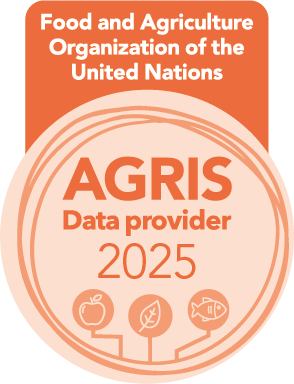Diet Intervention: Choice for Cancer Prevention and Patients Survival
DOI:
https://doi.org/10.54393/df.v3i02.57Abstract
Cancer remains a second leading cause of death in the world, despite significant advances in treatment. It is well known that diet has a significant impact on overall health, calorie restriction may be beneficial for treating a number of diseases and even lengthening patients survival. Obesity and cancer have been shown to have strong epidemiological links, and healthy diets have been shown to lower the risk of developing cancer. There is also evidence that obese patients have a worse outcome and a higher mortality rate after being diagnosed with breast, colon, prostate, pancreatic, ovarian, and hematologic cancers. However, little is known about how nutrition may affect cancer once it has been detected, particularly how diet may influence cancer therapy [1].
The American Institute for Cancer Research (AICR) developed lifestyle recommendations based on the most recent evidence. Following these suggestions may increase overall survival after cancer diagnosis: preserving a healthy body weight; engaging in physical activity; eating a diet high in fiber and soy; and limiting the consumption of fats, particularly saturated fatty acids. Previous study also supports the clinical utility of diet interventions in cancer patients. These interventions aim to ensure adequate energy and nutrient intake during chemotherapy, which may also improve patient response to and alleviate the toxicity of pharmacological anti-cancer therapies. Furthermore, by reducing cancer comorbidities, modifications in lifestyle, like as diet and exercise, might lessen the long-term negative effects of treatment regimens and improve general health over the long term [2].
Consumption of lignans, raw vegetables, dietary fiber, the Mediterranean diet, various dietary sources, low meat consumption, vegetarianism, or veganism, dietary intake (or biomarkers) of specific vitamins, like vitamin D, vitamin K2, or vitamin C, were all linked to a lower risk of developing cancer. An increased risk of cancer mortality was associated with poor food quality, alcohol usage, the intake of soft beverages like juice, and to a lesser extent, the consumption of certain fatty acids. The risk of dying from cancer was significantly enhanced by obesity [3].
The diet play important role in the lifestyle, disease prevention and may act as an immune booster but diet intervention is not surprising topic of discussion in the therapy of cancer. If the dietary intervention found beneficial in cancer treatment and prevention with therapeutic efficacy, it may have little or no toxicity. At this point, it is impossible to be sure which dietary strategy is best, and diet efficacies are likely to vary depending on patient, therapeutic regimen and cancer type. When implementing these strategies in the clinic, some personalization may be required because physician who treat overweight and obese patients are aware that sometimes the best diet is the one the patient is willing and able to follow. Further studies are needed on better diet intervention to cancer patients in order to improve cancer prognosis and patients survival
References
Mittelman SD. The role of diet in cancer prevention and chemotherapy efficacy. Annual review of nutrition. 2020 Sep; 40:273-297. doi: 10.1146/annurev-nutr-013120-041149.
De Cicco P, Catani MV, Gasperi V, Sibilano M, Quaglietta M, Savini I. Nutrition and breast cancer: a literature review on prevention, treatment and recurrence. Nutrients. 2019 Jul; 11(7):1514-42. doi: 10.3390/nu11071514
Molina-Montes E, Ubago-Guisado E, Petrova D, Amiano P, Chirlaque MD, Agudo A, et al. The Role of Diet, Alcohol, BMI, and Physical Activity in Cancer Mortality: Summary Findings of the EPIC Study. Nutrients. 2021 Nov; 13(12):4293. doi: 10.3390/nu13124293
Downloads
Published
How to Cite
Issue
Section
License
Copyright (c) 2023 DIET FACTOR (Journal of Nutritional & Food Sciences)

This work is licensed under a Creative Commons Attribution 4.0 International License.
This is an open-access journal and all the published articles / items are distributed under the terms of the Creative Commons Attribution License, which permits unrestricted use, distribution, and reproduction in any medium, provided the original author and source are credited. For comments












